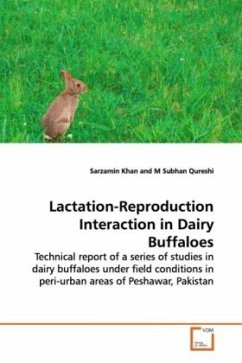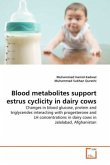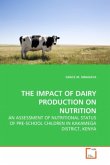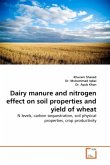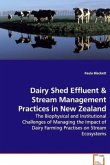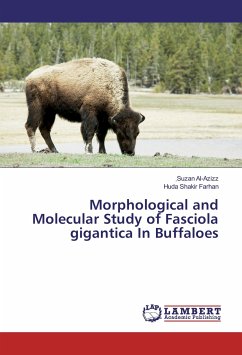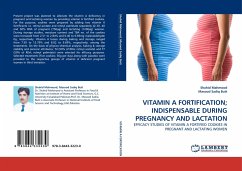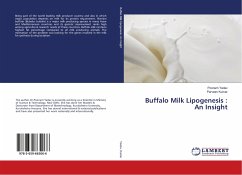In South Asia buffalo provides food for almost two-
third of the world population. Peri-urban dairy
farms with poor institutional backup have emerged to
meet the urban food demands. Post-conception decline
in milk yield has persuaded the farmers to avoid re-
breeding, resulting in genetic loss. This book
report a few studies concluding that pregnancy in
dairy buffalo results in a decline in milk yield at
an early stage than cattle. The decline was due to
nutritional deficiency, hormonal imbalance and
improper management. An animal becoming pregnant, if
supplemented with extra feed, would maintain the
higher yield and would overcome the hormonal stress.
The cost of feed supplementation was ten times less
than the loss due to yield decline. The authors
recommend that the post-conception decline may be
prevented through proper feed supplementation,
instead of same scale feeding as per prevailing
practice. Early postpartum breeding is recommended
to prevent total losses in milk yield and to prevent
genetic drain. Balanced feeding will also overcome
the reproductive problems associated with hormonal
imbalance.
third of the world population. Peri-urban dairy
farms with poor institutional backup have emerged to
meet the urban food demands. Post-conception decline
in milk yield has persuaded the farmers to avoid re-
breeding, resulting in genetic loss. This book
report a few studies concluding that pregnancy in
dairy buffalo results in a decline in milk yield at
an early stage than cattle. The decline was due to
nutritional deficiency, hormonal imbalance and
improper management. An animal becoming pregnant, if
supplemented with extra feed, would maintain the
higher yield and would overcome the hormonal stress.
The cost of feed supplementation was ten times less
than the loss due to yield decline. The authors
recommend that the post-conception decline may be
prevented through proper feed supplementation,
instead of same scale feeding as per prevailing
practice. Early postpartum breeding is recommended
to prevent total losses in milk yield and to prevent
genetic drain. Balanced feeding will also overcome
the reproductive problems associated with hormonal
imbalance.

